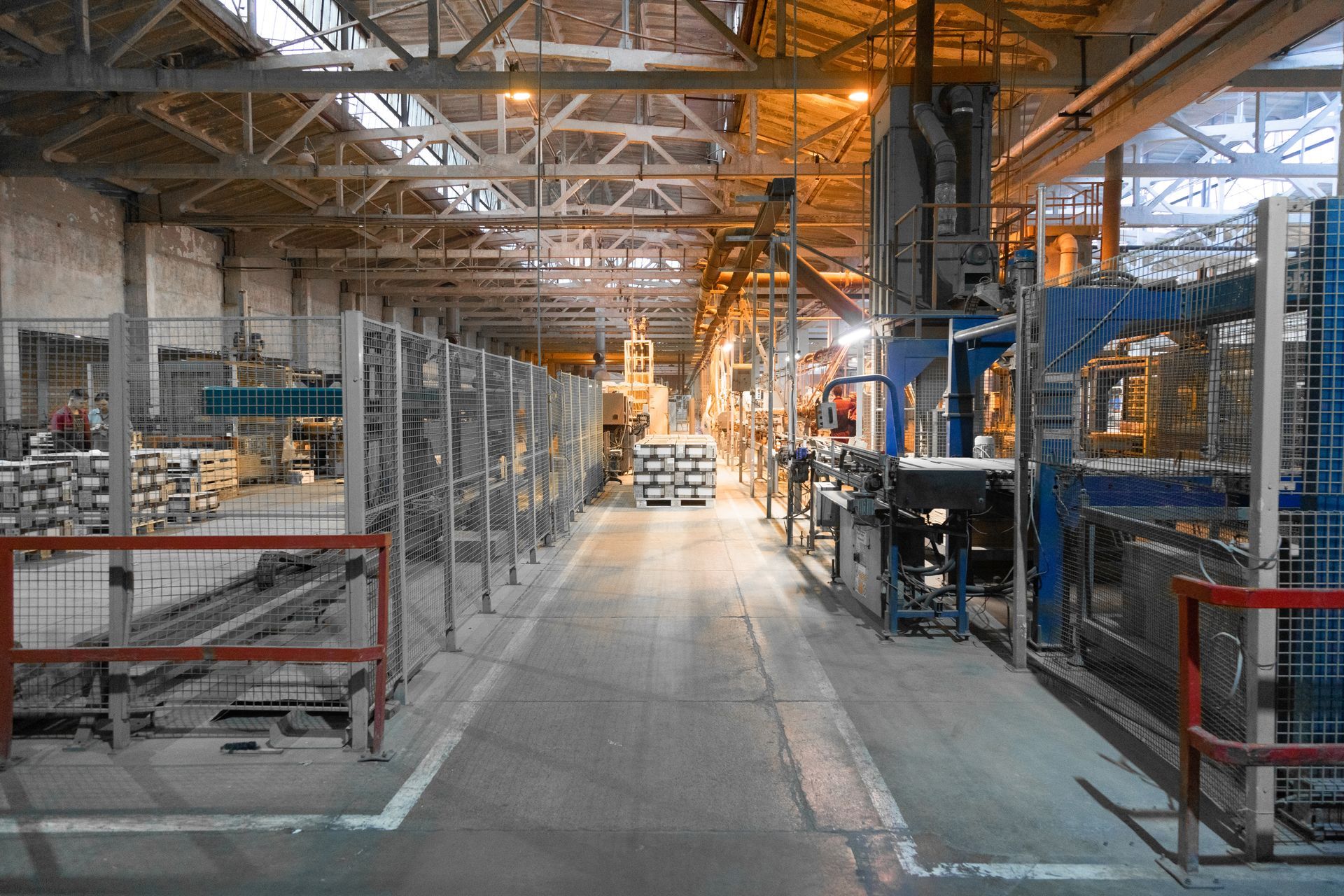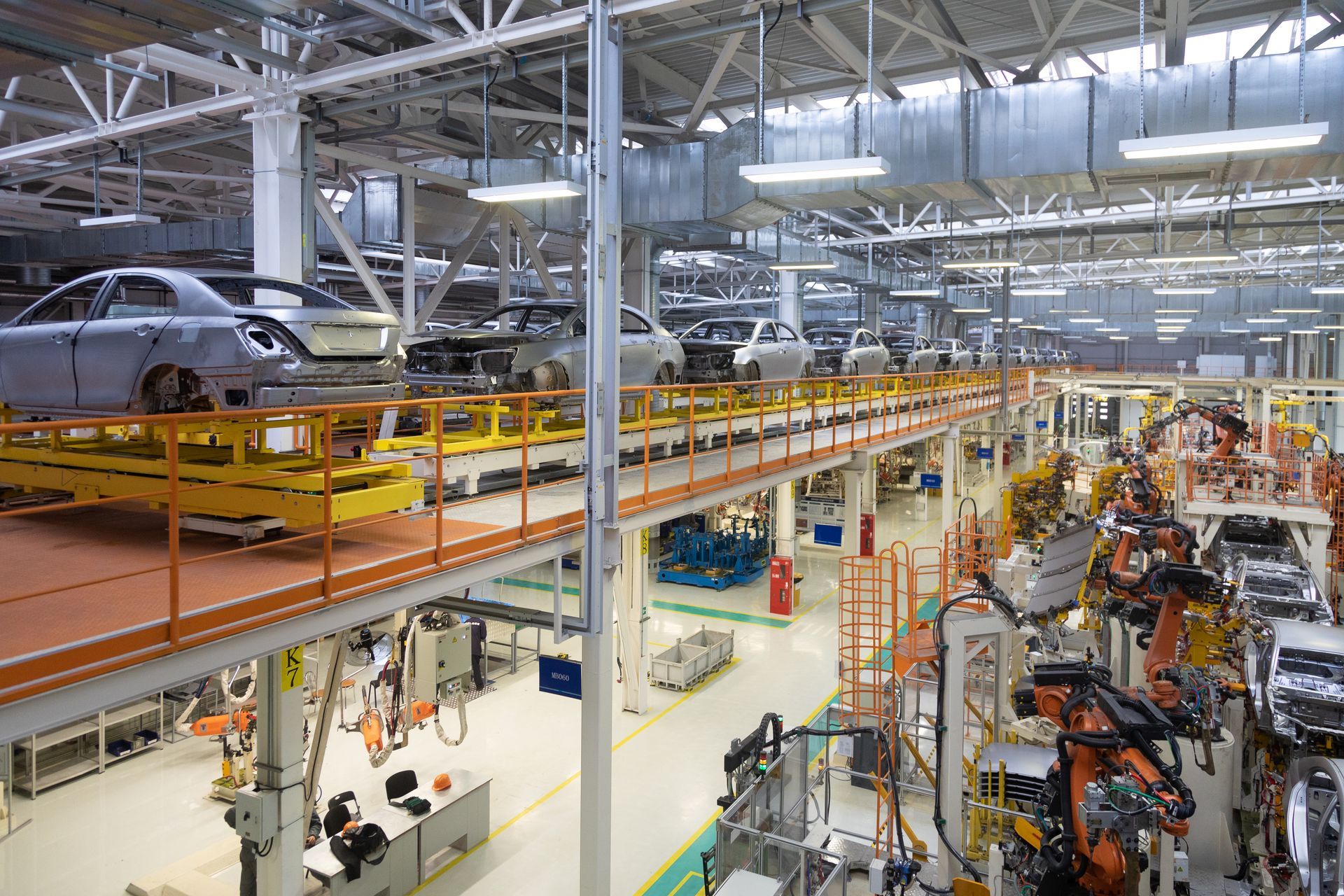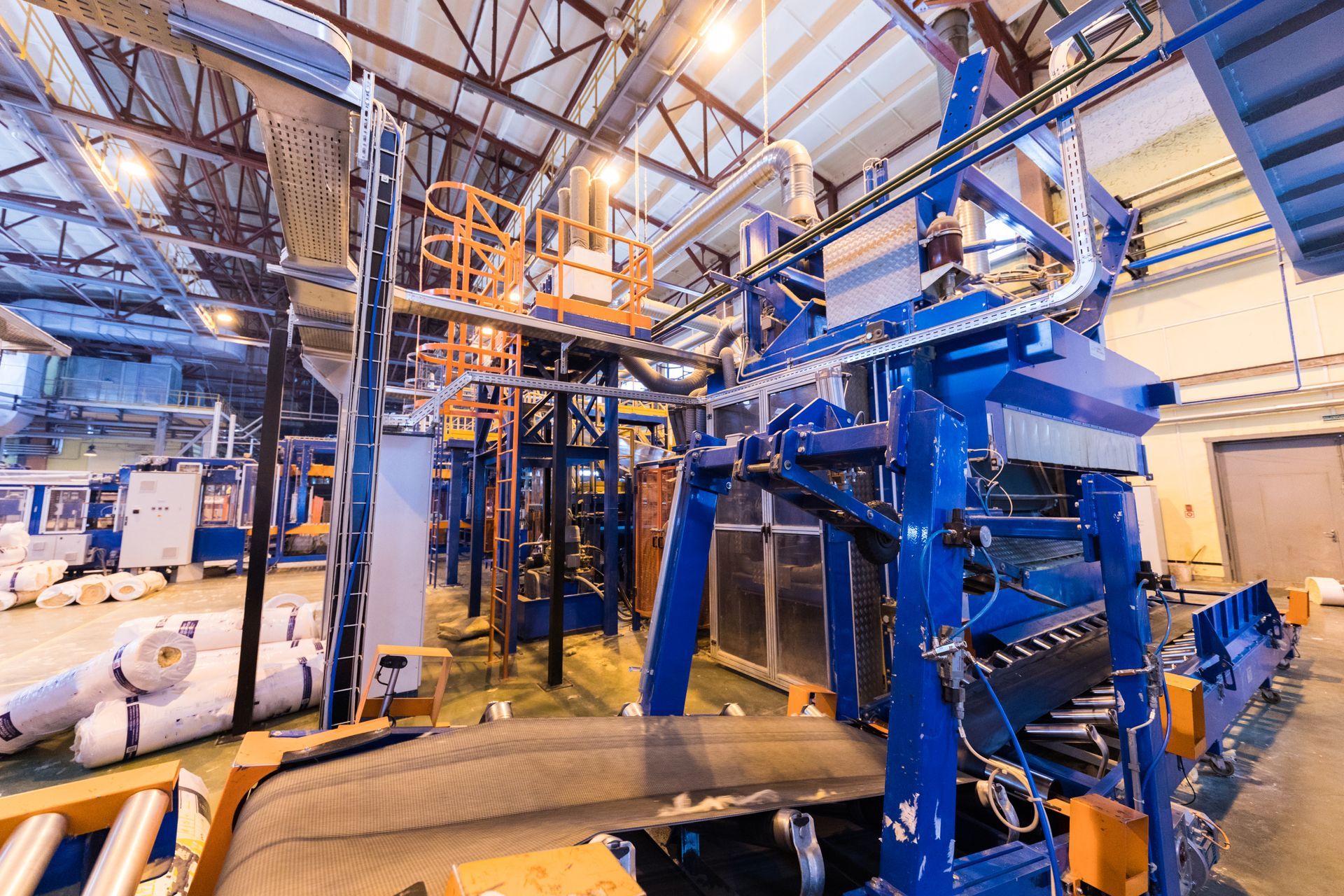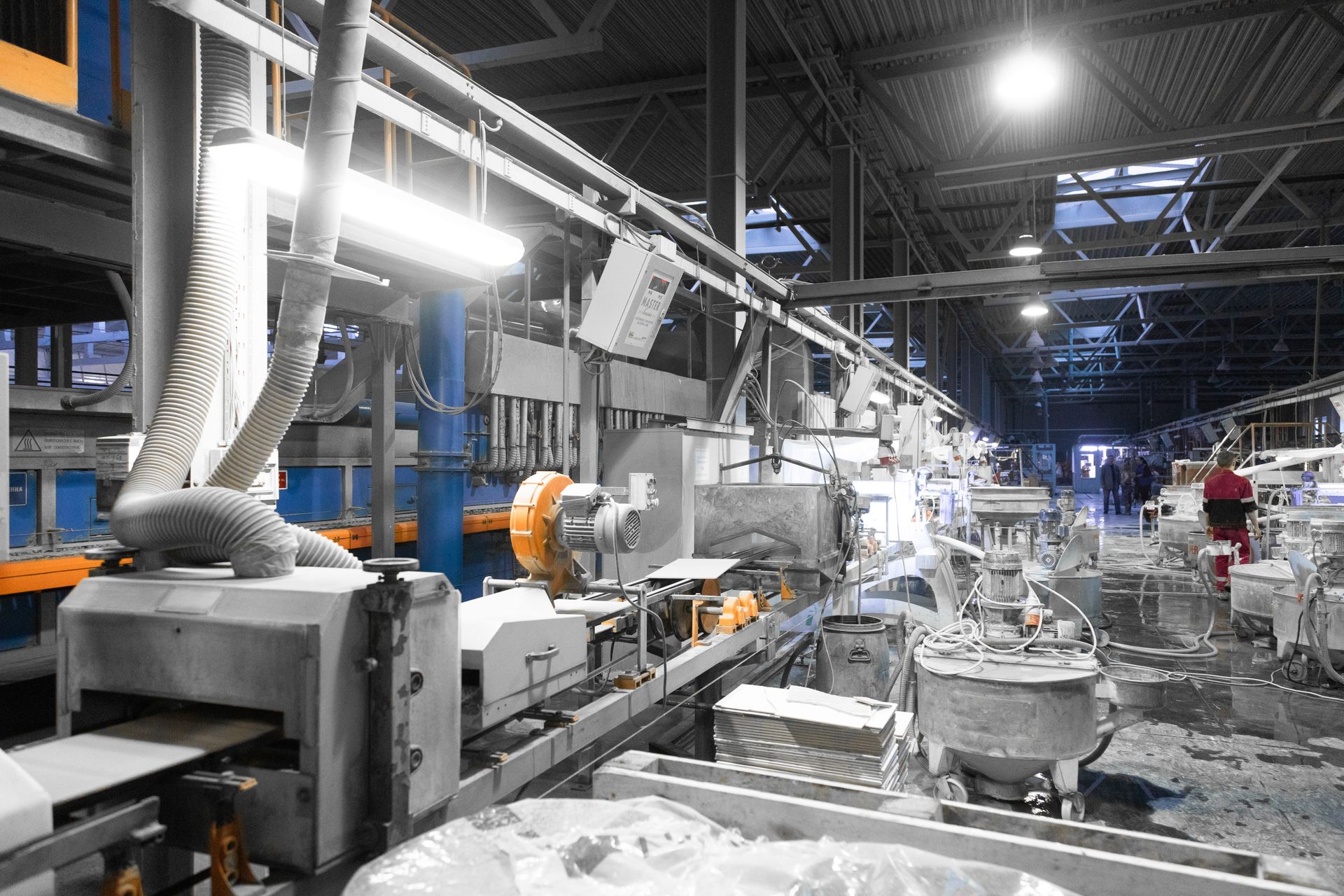Manufacturer Insurance in California
Index
Understanding Manufacturers Insurance
Key Features of Manufacturers Insurance in California
How to Choose the Right Manufacturers Insurance
The Cost of Manufacturers Insurance in California
Regulatory Requirements for Manufacturers Insurance in California
Contact Us
Phone
886-226-4436
Location
9340 Bolsa Ave, Westminster, CA 92683
Manufacturers insurance in California is a vital protection for businesses in the manufacturing industry. This comprehensive coverage provides
financial security against potential risks and liabilities associated with the manufacturing process. Whether you are a small, medium, or large-scale manufacturer, it is crucial to understand the basics of manufacturers insurance, the key features available in California, and how to choose the right insurance for your needs. Additionally, knowing the cost of manufacturers insurance and the regulatory requirements in California will ensure that your business is adequately protected and compliant with the law.
Understanding Manufacturers Insurance
Manufacturers insurance is specifically designed to address the unique risks faced by businesses involved in the manufacturing of products. This type of insurance covers a wide range of potential risks, including property damage, product liability, equipment breakdown, business interruption, and employee injuries. By obtaining manufacturers insurance, companies can protect their assets, reputation, and financial stability.
The Basics of Manufacturers Insurance
Manufacturers insurance typically includes several key coverages that are essential for businesses in this industry. Property insurance protects the physical assets of the manufacturing facility, including buildings, machinery, equipment, and inventory, against loss or damage caused by fire, theft, vandalism, or natural disasters. This coverage ensures that manufacturers can quickly recover from unforeseen events and continue their operations smoothly.
Product liability insurance provides coverage for legal claims arising from injuries or damages caused by products manufactured or distributed by the business. This coverage extends to product recalls or defects that may lead to injury or property damage. Manufacturers understand the importance of this coverage as it not only protects their customers but also safeguards their reputation in the market.
General liability insurance is another important component of manufacturers insurance. It covers third-party injuries or property damage that occur on the manufacturing premises or as a result of the products manufactured. This coverage offers manufacturers financial protection in case of accidents or incidents involving their products, ensuring that they can handle any potential legal claims or compensation.
Additionally, business interruption insurance safeguards manufacturers against a loss of income due to a covered event, such as a fire or natural disaster, that temporarily halts operations. This coverage helps businesses cover ongoing expenses and provides financial support until operations can resume. It is a vital component of manufacturers insurance, as it ensures that businesses can recover and continue their operations after a significant setback.
Importance of Manufacturers Insurance
The manufacturing industry faces unique risks that can have devastating financial consequences if not adequately protected against. Manufacturers insurance plays a crucial role in mitigating these risks, providing businesses with peace of mind and financial stability. In the event of a loss, such as a fire or a product liability claim, having the right insurance coverage can mean the difference between recovering quickly and going out of business.
Moreover, having manufacturers insurance can also enhance business credibility and attract potential customers, as it demonstrates a commitment to quality and responsibility. When manufacturers can showcase their comprehensive insurance coverage, it gives customers confidence in their ability to deliver high-quality products and handle any potential issues that may arise.
In conclusion, manufacturers insurance is an essential investment for businesses in the manufacturing industry. It offers comprehensive coverage for a wide range of risks, ensuring that manufacturers can protect their assets, reputation, and financial stability. By understanding the basics of manufacturers insurance and recognizing its importance, businesses can make informed decisions and secure the necessary coverage to thrive in a competitive market.
Key Features of Manufacturers Insurance in California
Manufacturers insurance in California offers specific features and coverages tailored to the needs of businesses in the state. Understanding these key features will help manufacturers in California make informed decisions when choosing their insurance coverage.
When it comes to manufacturers insurance in California, there are several important factors to consider. One of the key features is the variety of coverage options available. Manufacturers insurance provides a range of coverage options to meet the specific needs of different manufacturing businesses. These options may include general liability, product liability, property insurance, business interruption insurance, equipment breakdown insurance, and inland marine coverage.
General liability coverage is essential for manufacturers as it protects against claims of bodily injury, property damage, and personal injury. Product liability coverage, on the other hand, is crucial for manufacturers who produce and distribute products, as it provides protection against claims arising from product defects or malfunctions.
Property insurance is another important coverage option for manufacturers in California. It safeguards their physical assets, such as buildings, machinery, and inventory, against perils like fire, theft, and vandalism. This coverage ensures that manufacturers can recover financially in the event of property damage or loss.
Business interruption insurance is designed to protect manufacturers from income loss due to a temporary shutdown or disruption in operations caused by covered perils. This coverage can help manufacturers cover ongoing expenses, such as payroll and rent, while their business is unable to operate.
Equipment breakdown insurance is specifically tailored to cover the cost of repairing or replacing essential machinery and equipment in the event of a breakdown. This coverage is crucial for manufacturers who heavily rely on specialized equipment to carry out their operations.
Inland marine coverage is another important feature of manufacturers insurance in California. It provides protection for goods in transit, whether by land, air, or water. This coverage is particularly relevant for manufacturers who transport their products to customers or suppliers.
By working with an experienced insurance provider, manufacturers can customize their coverage to match their unique risk profile and industry requirements. These providers have in-depth knowledge of the manufacturing industry and can help manufacturers navigate the complexities of insurance coverage.
Special Provisions in California
California has additional regulations and requirements that manufacturers need to be aware of when obtaining insurance coverage. For example, California is known for its strict environmental regulations, and manufacturers may need to consider environmental liability coverage to protect against pollution-related risks.
Environmental liability coverage is designed to protect manufacturers from the financial consequences of environmental damage caused by their operations. It can cover costs associated with cleanup, legal defense, and compensation for third-party damages resulting from pollution incidents.
Additionally, California law requires employers to carry workers' compensation insurance, which provides benefits to employees who suffer work-related injuries or illnesses. This coverage is crucial for manufacturers as it ensures that employees are protected and provided with necessary medical treatment and wage replacement in case of work-related accidents or illnesses.
Manufacturers in California should be aware of these special provisions and ensure that their insurance coverage meets all the necessary requirements. Working closely with an insurance provider who understands the specific regulations and requirements in California can help manufacturers stay compliant and adequately protected.
How to Choose the Right Manufacturers Insurance
Choosing the right manufacturers insurance requires careful consideration of various factors to ensure that the coverage aligns with the specific needs and risks of the business.
Manufacturers face unique risks and challenges that require specialized insurance coverage. Whether it's protecting against product liability claims, property damage, or business interruption, having the right insurance in place is crucial for the long-term success and sustainability of a manufacturing business.
Factors to Consider
When selecting manufacturers insurance, businesses should evaluate their risk profile, including the size and nature of their operations, the types of products manufactured, the number of employees, and the location of the manufacturing facility. This assessment will help determine the necessary coverage types and limits.
For example, a large-scale manufacturing facility that produces hazardous materials will have different insurance needs compared to a small-scale operation that manufactures non-toxic consumer goods. By understanding the unique risks associated with their specific industry and operations, manufacturers can tailor their insurance coverage to adequately protect against potential losses.
Additionally, manufacturers should consider their budget and seek insurance that offers a balance between comprehensive coverage and affordable premiums. It's important to strike a balance between protecting the business and managing costs effectively.
Evaluating Insurance Providers
Choosing the right insurance provider is equally important as selecting the right coverage. Manufacturers should work with reputable insurers that have experience serving the manufacturing industry and a proven track record of handling claims efficiently.
Insurance providers with expertise in the manufacturing sector understand the unique risks and challenges that manufacturers face. They can offer tailored coverage options and provide valuable risk management advice to help businesses mitigate potential losses.
It is advisable to obtain multiple insurance quotes and compare the coverages, policy terms, and customer reviews of different insurers to make an informed decision. By doing thorough research and due diligence, manufacturers can ensure that they are partnering with an insurance provider that not only offers comprehensive coverage but also delivers exceptional customer service.
Furthermore, manufacturers should consider the financial stability and reputation of the insurance company. A financially stable insurer will have the resources to pay claims promptly and fulfill their obligations in the event of a loss.
In conclusion, choosing the right manufacturers insurance involves evaluating the specific risks and needs of the business, considering budget constraints, and selecting a reputable insurance provider. By taking the time to carefully assess these factors, manufacturers can secure the appropriate coverage to protect their business and assets.
The Cost of Manufacturers Insurance in California
Understanding the cost of manufacturers insurance in California is essential for budget planning and risk management. Manufacturers in the state face unique challenges and risks that require comprehensive insurance coverage. In this article, we will delve deeper into the factors that influence insurance premiums and explore strategies to lower insurance costs without compromising coverage.
Understanding Insurance Premiums
The cost of manufacturers insurance premiums in California can vary widely based on several factors. One of the primary factors is the size and nature of the business. Larger manufacturers with extensive operations may face higher premiums due to increased risks and potential liabilities. Similarly, manufacturers that produce high-risk products, such as chemicals or heavy machinery, may also experience higher insurance costs.
The location of the manufacturing facility is another crucial factor that insurers consider when determining premiums. Manufacturers located in areas prone to natural disasters, such as earthquakes or wildfires, may face higher insurance costs to account for the increased risk of property damage or business interruption.
Insurance providers also take into account the past claims history of a manufacturing business. If a manufacturer has a history of frequent claims or large settlements, insurers may view them as higher risk and charge higher premiums accordingly. On the other hand, manufacturers with a clean claims history may be eligible for lower premiums.
Lastly, the selected coverage limits play a significant role in determining insurance premiums. Manufacturers that opt for higher coverage limits to protect against potential losses may face higher premiums. It is essential for manufacturers to carefully assess their coverage needs and strike a balance between adequate protection and manageable insurance costs.
Ways to Lower Your Insurance Costs
While manufacturers insurance is a necessary expense, there are strategies to lower insurance costs without compromising coverage. Implementing risk management practices is one effective way to reduce insurance premiums. Manufacturers should prioritize maintaining a safe working environment by implementing safety protocols, providing proper training to employees, and regularly inspecting equipment for potential hazards. Insurers often offer discounts to businesses that demonstrate a commitment to risk mitigation.
Another crucial aspect of risk management is implementing quality control measures. Manufacturers should have robust quality control processes in place to ensure that their products meet industry standards and regulations. By consistently producing high-quality products, manufacturers can reduce the likelihood of accidents, product recalls, and insurance claims.
Working with an experienced insurance broker can also help manufacturers identify cost-saving opportunities. Insurance brokers have in-depth knowledge of the insurance market and can negotiate competitive rates on behalf of manufacturers. They can analyze the specific needs of a manufacturing business and recommend insurance policies that provide adequate coverage at the most favorable premiums.
In conclusion, understanding the cost of manufacturers insurance in California is crucial for manufacturers to effectively manage their budgets and mitigate risks. By considering the various factors that influence insurance premiums and implementing risk management practices, manufacturers can strike a balance between comprehensive coverage and manageable insurance costs.
Regulatory Requirements for Manufacturers Insurance in California
Manufacturers insurance in California is subject to certain regulatory requirements that businesses must comply with to operate legally and avoid penalties.
State Insurance Laws
Manufacturers in California must comply with the state's insurance laws, which include requirements for minimum levels of insurance coverage and compliance with relevant regulations. It is essential for manufacturers to understand these laws and work with knowledgeable insurance professionals to ensure full compliance.
Compliance and Penalties for Non-Compliance
Failure to comply with the regulatory requirements for manufacturers insurance in California can result in severe penalties, including fines, loss of licenses, and legal consequences. Non-compliance can also leave businesses exposed to higher levels of risk and financial loss. Manufacturers should stay informed about insurance laws and regulations and proactively address any compliance concerns.
In conclusion, manufacturers insurance in California plays a vital role in protecting businesses in the manufacturing industry. Understanding the basics, key features, and regulatory requirements will help manufacturers make informed decisions about their insurance needs. By choosing the right coverage, evaluating insurance providers, and managing risk, manufacturers can ensure they have the necessary protection to safeguard their business and thrive in California's competitive manufacturing landscape.
How much does manufacturer insurance cost?
The cost of manufacturer insurance varies greatly depending on several factors, such as the type of manufacturing business, the size of the company, the specific risks involved in the industry, the location of operations, and the amount of coverage required.
In general, the cost of manufacturer insurance can range from a few hundred to several thousand dollars per year. Small manufacturers might pay anywhere from $500 to $3,000 annually for basic liability insurance, while larger manufacturers may spend anywhere from $10,000 to $50,000 or more per year for comprehensive coverage that includes property, liability, worker’s compensation, and product liability insurance.
What is manufacturing insurance?
Manufacturing insurance is a type of insurance specifically designed for businesses involved in the manufacturing industry. It provides coverage for risks and liabilities that are common in manufacturing operations. These risks can include property damage, equipment breakdown, workers' compensation, liability for product defects, and accidents that occur within the manufacturing process.
There are several types of coverage included in manufacturing insurance, such as:
- Property Insurance: Covers damage to the manufacturing plant, machinery, and raw materials due to incidents like fire, theft, or natural disasters.
- Liability Insurance: Protects against claims for property damage or bodily injury caused by the manufacturing process or products.
- Workers' Compensation Insurance: Provides coverage for workers injured on the job, covering medical expenses, lost wages, and other related costs.
- Product Liability Insurance: Protects manufacturers from claims related to defective products that cause harm to consumers or damage property.
- Business Interruption Insurance: Covers lost income due to disruptions in the manufacturing process, such as equipment failure or supply chain issues.
Is Manufacturer business insurance required by law in California?
While not all types of business insurance are legally mandated, certain coverages are required under specific circumstances. For instance, workers' compensation insurance is mandatory for businesses with employees in California. Additionally, clients or landlords may require proof of general liability insurance before entering into contracts or leases.











